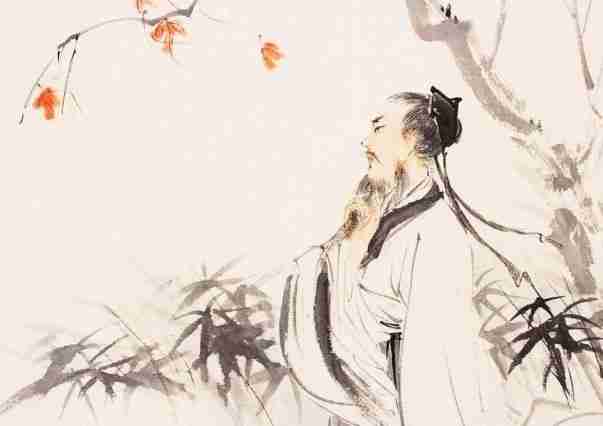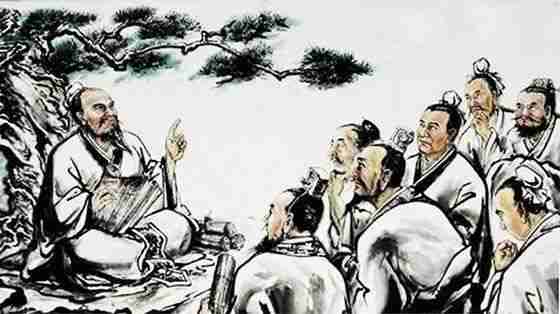Mohism Definition Meaning:Mohism, also called Moism, refers to the Chinese School of Philosophy that was founded by Mozi back in the 5th century BCE. This philosophy was founded on beliefs challenging the Confucian ideologies, which were dominant up until the 3rd Century BCE.
According to Mozi’s teachings and the Mohism beliefs, people were reminded of the necessity of developing individual piety, as well as submission to the Mandate or the Will of Heaven, also called Shangdi or the Lord on High. Mozi also deplored the Confucian emphasis and importance accorded to ceremonies and rites, regarding them as a waste of government funds.
Also, in contrast with the Confucian beliefs on moral ren or benevolence and humanity that differentiated between the special love for one’s family and parent from the general love that individuals showed to their fellow men, was the Mohist belief that advocated for the practice of love without any kind of familial or class distinctions. With these different belief systems, the Confucians, especially Mencius, attacked the Mohist values bitterly, especially when it came down to the element of undifferentiated love, which challenged the Confucian belief of the importance of family/ social harmony, which was the foundational belief of Confucianism and the Confucian State.
Mohist Doctrines
- Conforming upwards and elevating the Worthy for the government to be able to attain a more stable economic, social, and political order.
- Rejection of aggression and Inclusive Care for social order. This exemplified the Ren virtue that is all about goodwill and humanity, encouraging a love for all humanity instead.
- Thrift in Funerals and Utilizations – aimed at reducing wastes, and expenditure, especially on luxury.
- Elucidating ghosts and Heaven’s intention – this doctrine encouraged living morally and the reliability of heaven.
- Rejecting Fatalism and Music – Here, Mohism discouraged extravagance.
Who Founded Mohism?

Mohism was founded by a man known as Mozi or Mo Di, who was born around the year 470BCE and later died in 391BCE in China. It is believed that Mozi was born not long after the death of Confucius. Mozi was an official of the Song State, and many texts show that Mozi and Mencius were the greatest Chinese philosophers that taught and influenced societies during the Warring States Era. He did, however, flourish during the mid-to-late 5th Century decade, and he was as contemporaneous as Socrates, who is well-known in the west.
His name is also quite interesting, and it’s considered a rather unusual name or surname, which is also the name often used for ‘ink’ in Chinese. Scholars have since speculated that Mozi wasn’t his original family name, but he may have gotten the name as an epithet since he was once a slave or maybe a convict, and his face had been tattooed or branded with some dark ink.
At the time of Mozi’s birth and when he was alive, China, as it is known today, was non-existent. It wasn’t the giant unified country currently ruled by one person under a one-party system, but it was a collection of a number of warring systems, which goes without saying that China from the time of Confucius and Mozi was chaotic. That said, Mozi is one of the philosophers that tried to make sense of the state of China at the time. And in his own special way, he intended to make sense of everything going on, turning the chaos of the time into a more orderly state.
It would, therefore, appear that from the onset, Mozi was more of a Confucianism fan or sort of follower. But then, it would appear that he wasn’t in support of all the Confucian ideas, especially the rituals performed, or the concept called Ren or harmony, humanness, or benevolence. In a rebellious move, Mozi came up with the idea of Mohism, which was different from the Confucian Family love and an overall special kind of love, and also the importance of general benevolence that people needed to show to others.
When Did Mohism Originate?

Mohism developed from Mozi’s teachings originated from one man’s varying beliefs about the Confucian ways. The belief originates from the Han Dynasty.
This belief came into existence as a belief system meant to antagonize the very popular Confucian ways and beliefs. Mohism as a concept and belief system was all about impartial care, better known as universal love, and it meant that people needed to equally care about other people, regardless of their true or blood relationship with that person. This was the opposite of what Confucianism was all about. Mohism also stressed the importance of things like authenticity, self-restraint, and reflection.
This belief also stated that all people needed to be equal in all their material benefits, as well as protection from harm, and so, society needed a great deal of improvement in terms of having every unit of the society working with each other in harmony and like an organism, all with one uniform compass for morality. This was, all qualified people would get the jobs they qualified for, and the leaders/ rulers subsequently surrounded only with people who have great skill and are talented. An in case an unrighteous ruler took office, the result with be the seven disasters to the entire state – distrust, famine, illusions of strength, regression of the military defenses, etc.
The central elements of the Mohist beliefs include advocacy for a more unified and ethical/ political order that is founded in ethics (consequentialist), and overall and impartial concern for all, with opposition to any form of military aggression or anything that would cause injury to others. The belief also emphasized devotion to frugality and utility, as well as condemnation of luxury and waste. It also supported a centralized and authoritarian state that was led by a benevolent and a virtuous sovereign, under a meritocratic and hierarchical bureaucracy with obedience and reverence to heaven.
Mohism Vs Confucianism
Mohism belief systems are in contrast with the Confucian beliefs, specifically, the moral ideal called ren/ humanity and benevolence, an ideal that separated and differentiated the kinds of love that one would have towards their family and parents and the love they show the rest of the society. The Mohists advocated for a love practice that has absolutely no distinctions in terms of relations or jianai.